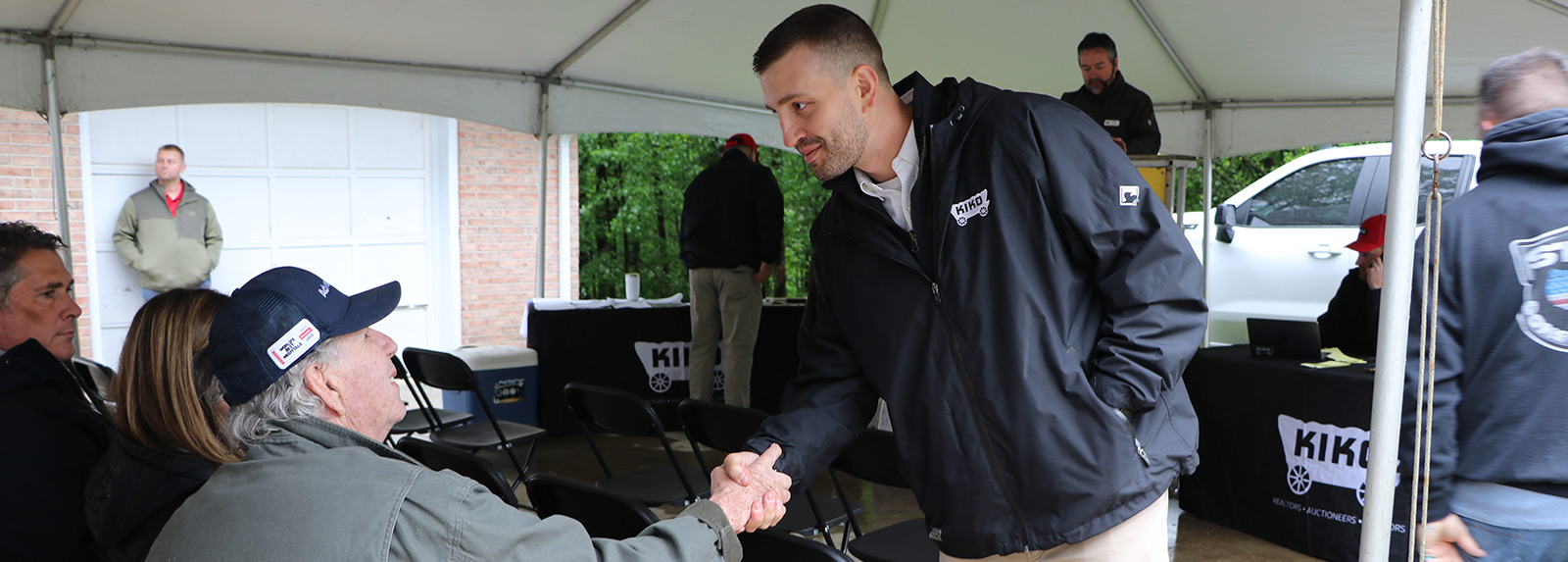
First Call: Important Information For Estate Executors
Key takeaways for estate executors: Prepare a basic asset inventory, understand timeline constraints, and have specific questions ready about services, costs, and processes before contacting estate professionals to ensure productive initial consultations and avoid costly delays.
Estate Terms to Know:
- Estate Auctioneer refers to a licensed professional who specializes in marketing, promoting, and selling inherited assets through public auction. Estate auctioneers work closely with estate attorneys to maximize value for beneficiaries through their expertise in asset valuation, marketing, and auction management.
- Estate Attorney refers to a lawyer who helps people plan for the management and distribution of their assets. They draft documents like wills and trusts, establish power of attorney, and provide guidance on tax implications.
Table of Contents:
- The Estate Team Approach
- Before You Pick Up the Phone
- Essential Information to Gather
- Questions to Ask Your Estate Auctioneer
- Making Your Final Decision
The Estate Team Approach
When you’re named executor of a family member’s estate, you’re not meant to navigate this complex process alone. The most successful estate settlements involve a coordinated team of professionals, with estate attorneys handling legal requirements and estate auctioneers managing asset liquidation.
This partnership approach ensures that while your attorney focuses on probate procedures, tax implications, and legal compliance, your estate auctioneer concentrates on maximizing the value of real estate and personal property through strategic targeted marketing and professional auction services.
Understanding this collaborative relationship from the beginning helps you make informed decisions about which professionals to engage and how they’ll work together to serve your family’s needs.
In my job, I have this component of caring and putting some of the stress of the seller onto my own shoulders, taking that away from them and being able to understand the situation that they’re in and help them get through that in the best possible way, the easiest way for them and also the way that produces the best results.
Before You Pick Up the Phone
If you’ve recently been named executor of a family member’s estate, you probably have questions about what to do with decades of accumulated possessions, collections, and property. This is completely normal, and estate auctioneers understand that you’re learning as you navigate this process.
While you don’t need to have everything figured out before making that first call, gathering some key information beforehand will help your initial conversation be more productive. Experienced estate auctioneers can guide you through the process more effectively when they understand the scope and character of what you’re managing.
Essential Information to Gather
Understanding Your Property Landscape
Before reaching out to estate auctioneers, spend some time walking through each property and creating a “family asset story.” This isn’t about precise valuations or detailed inventories; it’s about understanding the scope and character of what you’re managing.
Start with the real estate, noting not just addresses but the story each property tells. Has the family home recently been renovated? Does the vacation cabin have unique features that might attract specific buyers? Are there commercial properties or rental units that generate ongoing income?
A vacant home in excellent condition presents different opportunities than an occupied rental property or a house that needs significant repairs. When you describe these situations to estate auctioneers, they can immediately start thinking about appropriate strategies and realistic timelines for your specific circumstances.
Personal property often holds the most emotional complexity, even when it doesn’t represent the highest financial value. Rather than trying to count every item, think in terms of categories. Family collections, from dad’s coin collection to mom’s fine jewelry or artwork, present unique liquidation situations that experts can address
Questions to Ask Your Estate Auctioneer
When interviewing estate auctioneers, ask about their complete range of services. Many full-service auctioneers handle everything from initial consultation and asset evaluation to marketing, conducting the sale, and managing post-sale settlements.
Understand their approach to different types of assets. Ask about up-to-date comparables on your home or land. How do they handle valuable collections versus everyday household items? What’s their process for researching and marketing unique pieces?
Successful estate auctions require attracting the right buyers, which means understanding how they advertise sales, use online platforms, and reach specialized collectors for unique items.
Estate auction costs typically include commission rates, marketing expenses, and any additional services like clean up or storage. Reputable auctioneers provide clear, written estimates of all costs upfront, so there are no surprises later.
Ask about their policy for items that don’t sell. How do they handle these situations, and what options do you have for unsold items?
Estate auctions require careful coordination, especially when working with legal professionals and meeting court deadlines. Ask potential auctioneers about their typical timeline from initial consultation to settlement.
Understand what preparation work is required from your family versus what the auctioneer handles. Some auctioneers provide complete turnkey service, while others may require family members to handle certain aspects of preparation.
Making Your Decision
Evaluating Your Options
When choosing an estate auctioneer, consider their experience, reputation, services offered, and history. Ask for references from recent estate clients and, if possible, speak with estate attorneys who have worked with them.
The right auctioneer should demonstrate both professional expertise and personal empathy for your family’s situation. Estate liquidation involves both financial and emotional considerations, and the best professionals understand this dual nature.
Moving Forward
Once you’ve selected an estate auctioneer, work with them to develop a comprehensive plan that coordinates with your estate attorney’s timeline and requirements. Clear communication and realistic expectations help ensure successful outcomes for all involved.
Remember that estate settlement is a process, and having experienced professionals who work well together makes that process smoother and more effective for your family.



